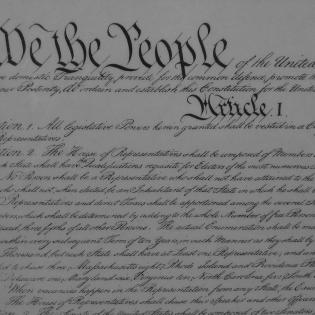We ARE the Government
What is our democratic responsibility for volunteering and serving for the common good?
Photo Credit: Copy of U.S. Constitution by Adam Theo is licensed under CC by 2.0
Learners look at the primary documents of the Constitution to gain a sense of the purpose, motivations, and people of the founding documents. They explore the meaning of democracy and responsible citizenship as it relates to philanthropy.
In this lesson, learners read primary documents that illustrate the motivations of the founding fathers of the United States related to philanthropy (government by the people, advocacy, civil rights, shared power). We have a long history of demanding civil rights for a population that was discriminated against or underserved.
Learners read and reflect on the meaning of democracy. They discuss and explore examples of participatory democracy in history. They read quotes from Founding Fathers and relate them to philanthropy and civic engagement.
